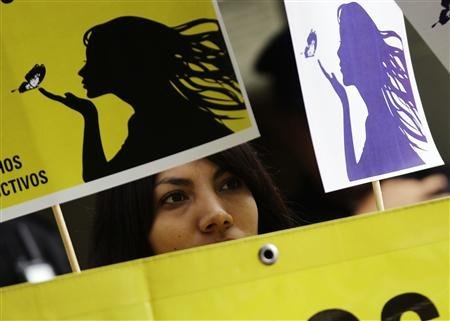Human rights advocate slams Amnesty International's abortion up to birth policy stance

The human rights advocacy group Amnesty International is facing criticism over its revised policy expressing support for unrestricted abortion up to birth.
Last week, Amnesty International, which describes itself as a “global movement of 7 million people” working to create “a world where human rights are enjoyed by all,” released its updated abortion policy. The new policy “recognizes the right of every woman, girl or person who can become pregnant to abortion” and “calls for full decriminalization of abortion and universal access to abortion, post-abortion care and evidence-based, non-biased abortion-related information, free of force, coercion, violence and discrimination.”
Amnesty International contends that it decided to revisit its position on abortion in light of “evolving international human rights law and standards.”
The organization states on its frequently asked questions page that its position on abortion "is informed by years of research and consultations with women and girls whose lives have been shattered by restrictive laws; as well as with medical providers, activists and legal experts.”
In an interview with Catholic News Agency, Elyssa Koren, director of United Nations advocacy at ADF International, dismissed the idea that international human rights law was “evolving” in the pro-abortion movement’s favor. “When Amnesty refers to growing voices in the international realm to support its claim, it must be acknowledged that these voices are operating illegitimately in the first place,” she said.
“They stem from various bureaucratic functions within the U.N. system that have been co-opted by abortion activists. Their decrees are not reflective of the will of the community of member states—the majority of which are not in support of the U.N.’s aggressive abortion agenda,” she added.
Koren saw Amnesty International’s new policy as evidence of a “self-referential echo chamber made up by abortion groups and elements of the international system.” “They think that by consistently asserting that abortion is a ‘human right,’ they can make it so.”
In contrast to its previous position, which “advocated for abortion access under certain circumstances,” Amnesty International’s new position on abortion calls for “universal access to safe abortions for all people who need them.” Amnesty International now supports abortion right up until the moment of birth.
Amnesty International dismisses the assertion that abortion is a “violation of the right to life,” arguing that “no international or regional human rights body has ever found abortion to be incompatible with human rights, including the right to life.” International human rights law, according to Amnesty International, makes it clear that “human rights apply after birth, not before.”
Koren rejected the idea that human rights laws do not apply until after birth: “The right to life that all persons possess applies from the moment when life starts, which science confirms is at conception. International law supports this reality.” Koren pointed to the preamble of the U.N. Convention on the Rights of the Child, ratified by over 190 countries, which states that children are entitled to “appropriate legal protection, before as well as after birth.”
In addition to expressing little concern about the abortion of unborn children with disabilities, Amnesty International believes that “healthcare providers should be forced to perform abortions even if this goes against their beliefs” because “international law does not recognize refusal to provide healthcare on grounds of conscience or religious beliefs as a human right.”
“Amnesty’s abortion agenda has significantly undermined its authentic human rights credentials,” Koren said. “As its agenda grows increasingly aggressive, it is sure to alienate governments that would otherwise want to work with the international community to better their international human rights trajectory. Most insidiously, Amnesty’s efforts not only de-legitimize its own work, but that of the international human rights project as a whole.”
Koren expanded upon her concerns about the push for abortion in the international community in an op-ed for Townhall. She explained that “the Secretary-General recently identified ‘reproductive health services’ (abortion) as the most important part of the U.N.’s COVID-19 response.”
She also spoke of “mounting evidence that the U.N. is using the pandemic to force countries to legalize abortion in exchange for coronavirus aid money,” specifically citing the awarding of $8 million in aid to Ecuador in exchange for the legalization of abortion and the distribution of “DIY abortion kits inside the country.”
Amnesty International first abandoned its neutral position on abortion in favor of a pro-abortion stance in 2007. Even before unveiling its updated abortion policy last week, Amnesty International frequently slammed pro-life laws. Collaborating with Uma Mishra-Newberry from Women’s March Global, Amnesty International’s Jaime Todd-Gher wrote an article for Amnesty describing “anti-abortion laws” as “an attack on our right to live with dignity and decide what happens to our bodies.”






















